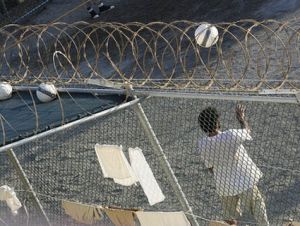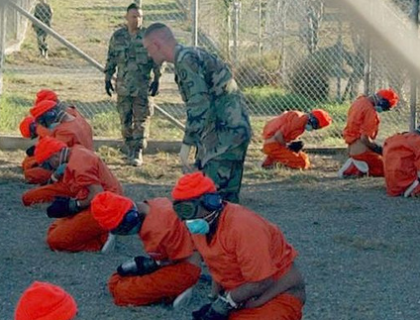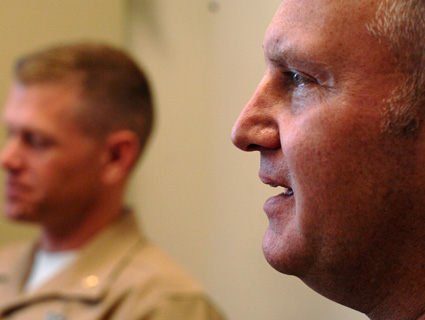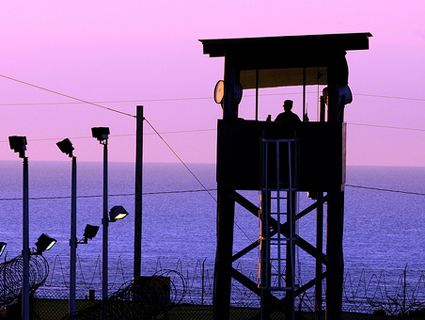
A detainee at Gitmo tosses a soccer ball.<a href="http://www.flickr.com/photos/jtfgtmo/5497741300/sizes/m/in/photostream/" target="_blank">Flickr/JTFGitmo</a>
The Defense Department on Friday refused prosecutors’ request to drop conspiracy from the list of charges facing 9/11 mastermind Khalid Sheikh Mohammed and his co-defendents, a decision that could drag the entire process out for years.
Prosecutors at Guantanamo Bay wanted to drop the conspiracy charges because there’s a good chance those charges will be thrown out if the 9/11 defendants are convicted and appeal. Last October, a federal appeals court overturned the conviction of Salim Hamdan, Osama bin Laden’s former limo driver, who had been the first Gitmo detainee to be tried and convicted by military commission. The opinion, written by a conservative judge appointed by George W. Bush, strongly suggested that charging terror suspects with conspiracy in military commissions is unconstitutional if the conspiracy occurred before Congress made conspiracy a war crime. The Constitution forbids ex post facto (after the fact) prosecutions—that is, trying people for acts that were not crimes when they were committed. The laws governing military commissions trials were passed after the 9/11 attacks. “The Court of Appeals had it absolutely right that military commissions cannot try defendants for conduct that is not a war crime,” says ACLU attorney Zachary Katznelson.
The Department of Defense released a statement Thursday saying that “dismissal at this time would be premature, as the viability of conspiracy as a chargeable offense in trials by military commission is still pending appellate review.” That’s true, but if the appeals court decision survives, and the 9/11 defendants are convicted anyway, they could easily appeal the verdict, even possibly securing a new trial, explains Andrea Prasow, a former defense counsel for Hamdan now with Human Rights Watch. “That would mean many more years of litigation,” she says. “The victims of 9/11 have already waited more than 11 years for justice—they shouldn’t have to wait another decade to achieve some finality.”
None of this would have been a problem if the alleged 9/11 conspirators had been tried in civilian court, where there’s no dispute over the legitimacy of conspiracy charges in terrorism cases.











